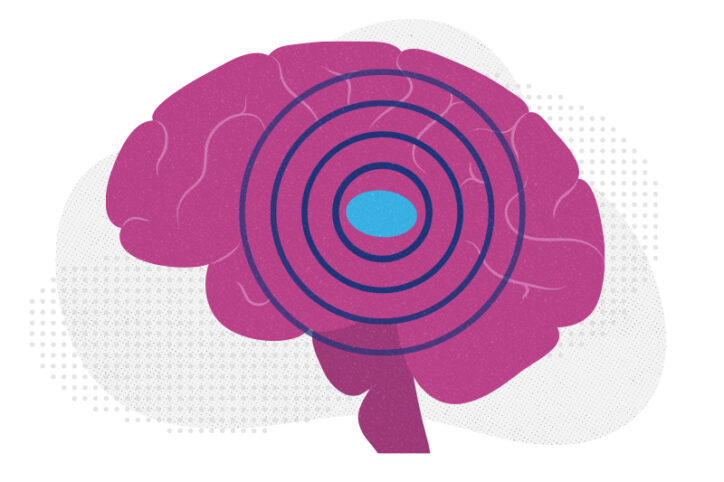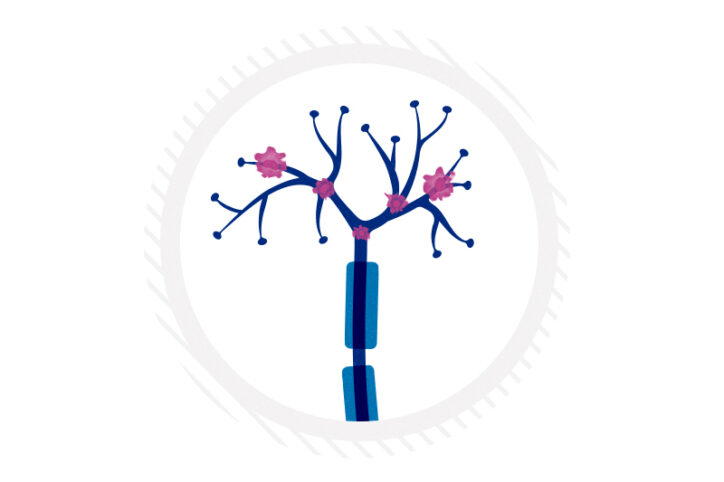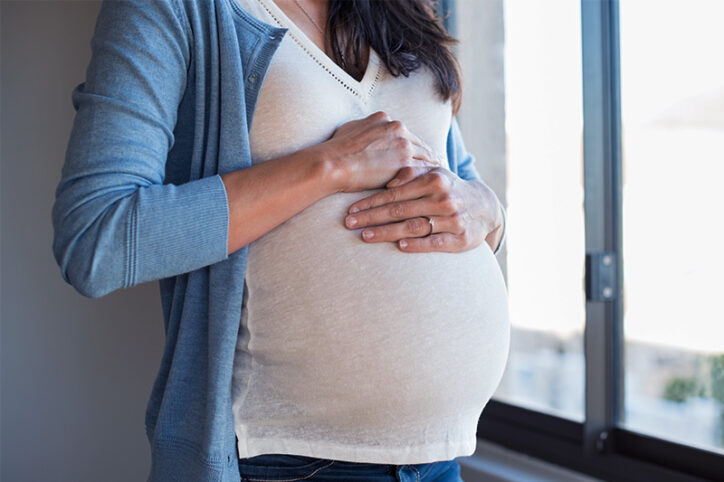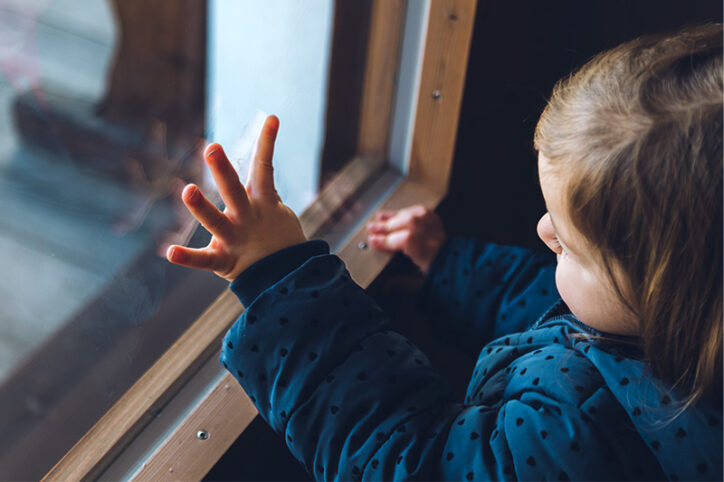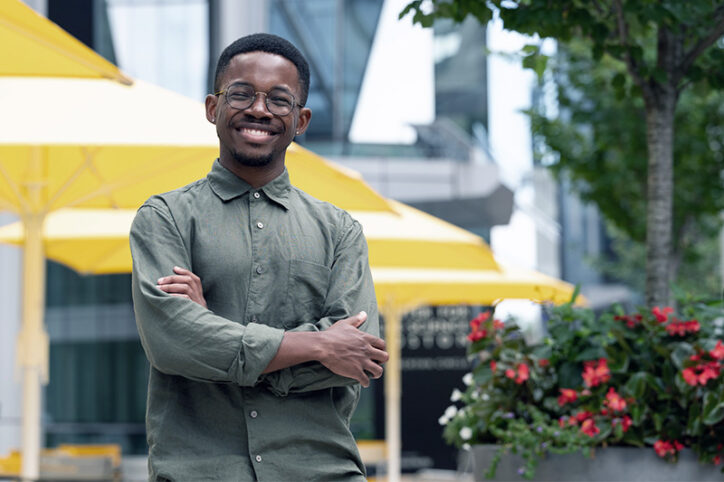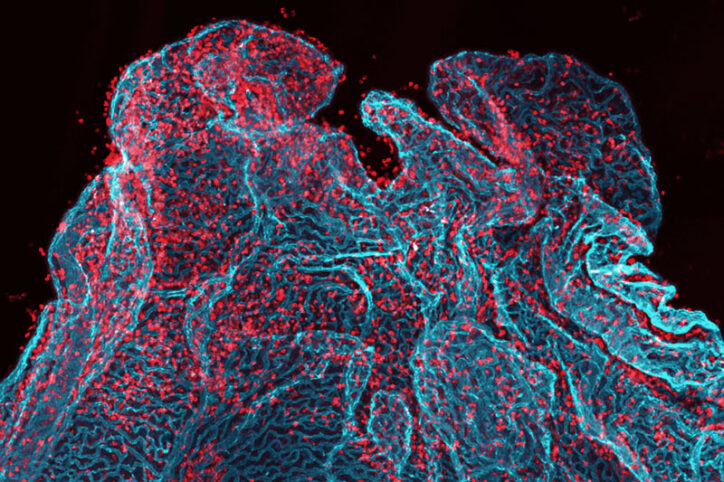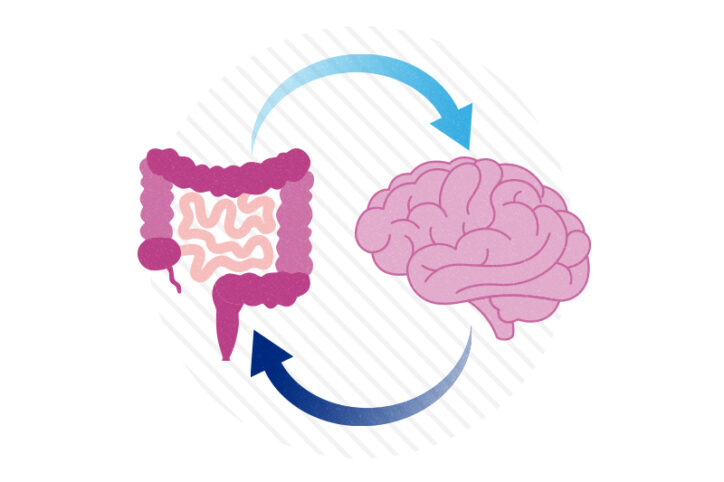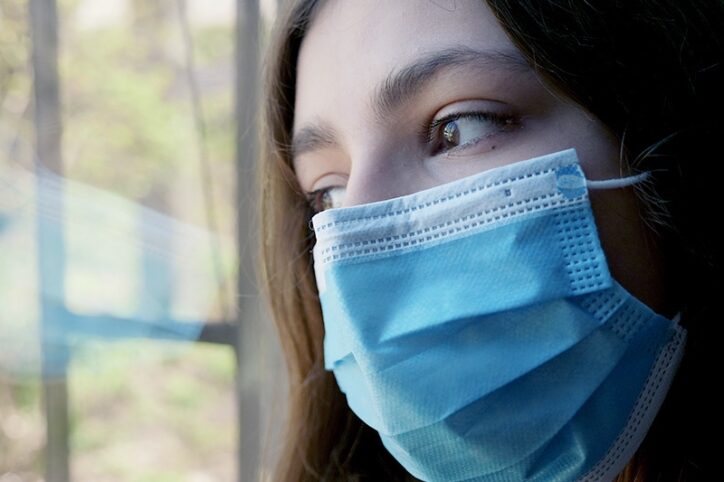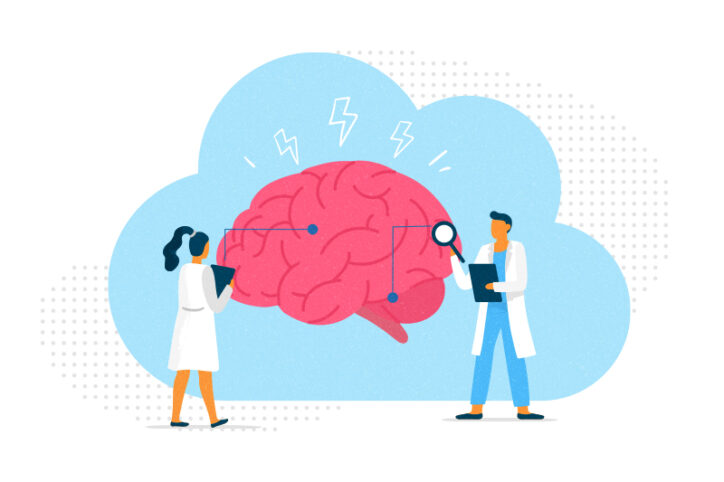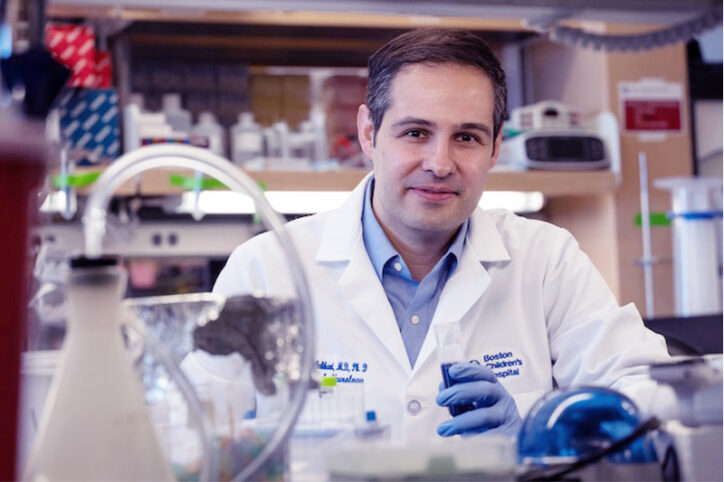Archive for neuroscience
The thalamus: A potential therapeutic target for neurodevelopmental disorders
Years ago, as a neurology resident, Chinfei Chen, MD, PhD, cared for a 20-year-old woman who had experienced a very small stroke, affecting only the thalamus. “It was so tiny that she wouldn’t have noticed any symptoms had the stroke been in any other area of the brain,” says Chen, who is now an investigator ... Read More about The thalamus: A potential therapeutic target for neurodevelopmental disorders
Tagged: autism, developmental medicine, neurology, neuroscience
Could peripheral neuropathy be stopped before it starts?
An increase in high-fat, high-fructose foods in people’s diets has contributed to a dramatic increase in type 2 diabetes. This, in turn, has led to an increase in peripheral neuropathy — nerve damage, typically in the hands and feet — that causes weakness, loss of sensation and, in some, a stabbing, burning, or tingling pain. ... Read More about Could peripheral neuropathy be stopped before it starts?
Tagged: diabetes, immunology, neurology, neuroscience
Mutations during prenatal development may contribute to schizophrenia
Schizophrenia is known to have a genetic component, and variants in 10 genes have been identified as markedly increasing schizophrenia risk. But together, these genes account for under 5 percent of cases. Now, a pilot study in the journal Science suggests another important contributor to schizophrenia: distinctive patterns of non-inherited (somatic) mutations. These mutations appear ... Read More about Mutations during prenatal development may contribute to schizophrenia
Tagged: genetics and genomics, neuroscience, schizophrenia
Delving into the causes of attention deficits: Childhood adversity, lost sleep, and dopamine
New research on the effects of adversity in childhood ties together stress, sleep loss, and attention deficits later in life. It also uncovers some of the underlying brain biology and potential treatment approaches — while revealing a puzzling sex-specific effect. The lab of Takao Hensch, PhD, has long studied time windows during development — commonly ... Read More about Delving into the causes of attention deficits: Childhood adversity, lost sleep, and dopamine
Tagged: ADHD, developmental medicine, neuroscience, sleep
When community is as important as the science: Olúmídé Fagboyegun
In his short, prolific neuroscience career, Olúmídé Fagboyegun has always sought community. It’s served him well, from his years at community college in Maryland to his PhD work in the Stevens Lab at Boston Children’s Hospital. Landing in Maryland from his native Nigeria at age 15, Fagboyegun found he had to repeat part of high ... Read More about When community is as important as the science: Olúmídé Fagboyegun
Tagged: neuroscience, research rising stars
Humble cells in a little-known organ manage brain inflammation
Deep in the brain, sheets of tissue known as the choroid plexus produce cerebrospinal fluid (CSF) and act as a protective barrier between the brain and CSF. But the lab of Maria Lehtinen, PhD, at Boston Children’s Hospital has shown that the little-known choroid plexus does much more. For example, it secretes factors that promote ... Read More about Humble cells in a little-known organ manage brain inflammation
Tagged: immunology, neuroinflammation, neurology, neuroscience
The gut-brain connection: A new approach to OCD and tic disorders?
It’s natural for young children to use routines to help them navigate the world and for older children and teens to zero in on interests and hobbies. But if they veer into disruptive, unwanted obsessions or thoughts or the need to perform compulsive rituals, they may have obsessive-compulsive disorder (OCD). We know that OCD is ... Read More about The gut-brain connection: A new approach to OCD and tic disorders?
Tagged: diet, microbiome, neuroscience, research
Brain wiring predicted adolescents’ emotional health during COVID
The COVID-19 pandemic was emotionally devastating for many adolescents, disrupting their schooling and social/emotional development. Drawing on national data, a large study finds that how adolescents’ brains were wired — before COVID-19 — predicted their stress, negative emotions, and overall mental health during the height of the pandemic, making them more vulnerable or more resilient. ... Read More about Brain wiring predicted adolescents’ emotional health during COVID
Tagged: adolescent medicine, coronavirus, mental health, neuroscience
Exploring brain operations: Making decisions, snapping to attention, and forming memories
How do our brains snap to attention and orient us to the outside world — like when we’re sound asleep and the smoke alarm goes off? And when different choices confront us, how does our brain make decisions? Two groups of researchers at Boston Children’s explored these all-important brain operations. The first study, published February ... Read More about Exploring brain operations: Making decisions, snapping to attention, and forming memories
Tagged: ADHD, alzheimers disease, epilepsy, neuroscience
The journey to a treatment for hereditary spastic paraplegia
In 2016, Darius Ebrahimi-Fakhari, MD, PhD, a neurology fellow at Boston Children’s Hospital, met two little girls with spasticity and decreased muscle tone in their legs, which affected their walking. Both girls, Robbie Edwards and Molly Duffy, had been diagnosed with hereditary spastic paraplegia (HSP), a group of more than 80 genetic conditions. Untreated, the ... Read More about The journey to a treatment for hereditary spastic paraplegia


